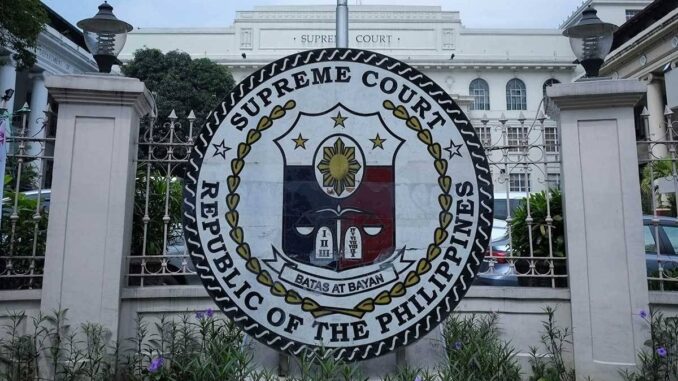
CREDITORS may take possession of properties used as collateral for loans, but not full ownership, unless the transaction is agreed upon by both parties as a negotiated settlement for the outstanding loan, according to a recent Supreme Court ruling.
The decision, penned by Chief Justice Alexander Gesmundo, clarified lenders’ rights over collateral properties while reinforcing protection for borrowers under Philippine law.
The case involved Ruby Shelter Builders and Realty Development Corp., which borrowed P95 million from creditors Romeo Tan and Roberto Obiedo. Ruby Shelter listed several properties as collateral for its loan.
As its outstanding debt grew, Ruby Shelter entered into a memorandum of agreement (MOA) with Tan and Obiedo, which gave the company more time to repay the loan.
The MOA stipulated that, in the event of a loan default, Tan and Obiedo can register deeds of absolute sale to transfer ownership of the collateral properties to themselves.
Ruby Shelter also agreed to sell its properties for P5 million as part of the deal.
However, when the parties failed to agree on the loan settlement terms, Tan and Obiedo notarized the deeds of sale prematurely, prompting Ruby Shelter to file a complaint in the Regional Trial Court (RTC).
The company argued that the deeds were invalid and violated the prohibition against pactum commissorium, a provision in Article 2088 of the Civil Code. Pactum commissorium is an agreement that automatically transfers ownership of a collateral to the lender in case of default, a practice prohibited by law to prevent borrowers from losing assets worth more than their debts.
The RTC initially ruled in favor of Ruby Shelter, asserting that the deeds of sale constituted a prohibited pactum commissorium.
However, the Court of Appeals (CA) reversed the decision, siding with Tan and Obiedo and upholding the RTC’s ruling.
Ruby Shelter then elevated the case to the Supreme Court, which affirmed the transfer of ownership of the properties to Tan and Obiedo, based on the valid agreement under the MOA.
In its decision, the Supreme Court explained that pactum commissorium occurs when a loan agreement includes a provision that automatically transfers ownership of a loan collateral to the lender upon default. This provision, the high court noted, is prohibited because it can lead to an unfair loss of assets for the borrower.
However, it clarified that such a prohibition applies only to automatic transfers. Borrowers are free to voluntarily sell their collateral to lenders as a form of repayment, provided the transaction is agreed upon by both parties.
In this case, the Supreme Court concluded that Ruby Shelter had willingly entered into an agreement to sell its properties to Tan and Obiedo, not as an automatic consequence of default, but as a negotiated settlement for the outstanding loan.
Therefore, the transfer did not constitute a prohibited pactum commissorium, and was legally valid.


Be the first to comment